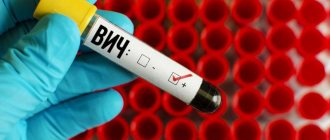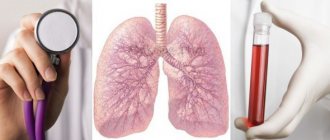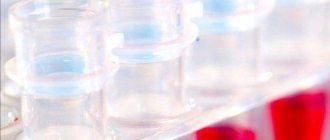0
Author of the article: Marina Dmitrievna
2017.10.01
9 630
Blood analysis
Your healthcare professional will not recommend smoking before the test because it is done on an empty stomach. And smoking cigarettes on an empty stomach can distort the results. A smoker increases the level of catecholamine in the blood, as well as carboxyhemoglobin and cortisol. This is followed by: the indicator for eosinophils is lower and higher for neutrophils. A bad habit also provokes other jumps in indicators, so it’s unlikely to be possible to judge by blood from a finger.
One of the prohibitions before blood collection
The test must be taken on an empty stomach. In the morning and the previous evening, do not experience physical strain and do not drink alcohol. Smoking is not recommended at least sixty minutes before the test collection. The greatest amount of nicotine in the blood will be thirty minutes after smoking a cigarette. Therefore, the answer to the question “is it possible to smoke before taking tests?” – negative. Is it possible to smoke a hookah the night before blood collection? Tobacco used in hookah contains nicotine, but in addition to nicotine, it may contain other chemicals that can have an unpredictable effect on the result of a blood test.
Therefore, refrain from hookah the day before the test.
Hookah is included in the group of prohibited activities.
Determination of glucose levels in the blood is prescribed in case of likelihood of diabetes. How true the results will be depends on the patients. For a real picture of your health, physical and emotional stress is not recommended before going to the clinic, even the day before the procedure. It is prohibited to drink alcohol the day before blood collection. Smoking is allowed no more than an hour before the test, otherwise the results will be incorrect. For three days before the test, adhere to proper nutrition and exercise.
Smoking the day before will cause a false result. After all, after a cigarette, a person’s state changes: emotions, nervous state, composition of fluids in the body. This affects the correctness of the results. It will not affect blood sugar levels. So does smoking affect blood tests?
Smoking will not affect your sugar levels, but other indicators will suffer.
Despite the fact that smoking does not affect glucose levels, nicotine can change other blood parameters. Smoking is allowed one hour before the procedure.
Which hormones to test to determine a woman’s hormonal imbalance?
The main tests for hormonal levels include studying the level of:
- luteinizing hormone (LH);
- estradiol (hormone e2);
- prolactin;
- testosterone;
- follicle-stimulating hormone (FSH);
- DHEA sulfate;
- thyroid stimulating hormone (TSH).
According to indications, the level of somatotropic hormone (GH), adenocorticotropic hormone (ACTH), 17-ketosteroids and cortisol (hydrocortisol) is additionally determined.
Where is the blood taken from?
What kind of blood is taken for analysis? This question interests some women. After all, there is a lot of research. And there are several types of blood - capillary and venous.
Previously, the technique of taking blood from a finger was common. That is, the capillary type of biological material made it possible to see the concentration of certain substances. But this research method is outdated.
DETAILS: Ultrasound gynecology for girls
Accordingly, now mostly venous blood is taken for any analysis. A special receiver of biological material is inserted into a vein located on the elbow joint. The process does not bring any significant pain. But this feature does not apply to the rules for taking tests.
Indications for hormonal testing
These studies are carried out if the patient has:
- infertility;
- spontaneous abortions;
- menstrual disorders;
- delayed puberty or premature puberty;
- inter-cycle discharge;
- dysfunctional uterine bleeding;
- decreased sexual desire;
- pain during sexual intercourse;
- dryness and atrophy of the vaginal mucosa;
- signs of endometriosis;
- hirsutism;
- anovulation;
- symptoms of polycystic ovaries;
- chronic inflammatory processes in the pelvis;
- galactorrhea;
- mastopathy;
- neoplasms in the uterus, ovaries and mammary glands;
- signs of sexual infantilism;
- obesity;
- cardiovascular pathologies at a young age;
- signs of osteoporosis;
- obesity;
- lactation disorders after childbirth;
- pain in the mammary glands;
- severe PMS;
- severe menopausal disorders;
- hair loss;
- acne, etc.
Hormonal levels are also examined to determine the ovulatory period, assess the control of ongoing hormonal therapy, control drug induction of ovulation, before in vitro fertilization, assess the condition of the feto-placental complexes, etc.
How is blood tested for hormones, on an empty stomach or not?
Patients are often concerned about the question: is blood taken for hormones on an empty stomach or not?
All hormonal studies are carried out exclusively on an empty stomach.
Also, it is not recommended to have sex one or two days before taking hormones.
You should avoid drinking alcohol at least one day before the test.
You should not smoke before blood collection.
In the morning before the test, you are allowed to drink still water.
On the eve of the study, it is recommended to refrain from visiting the sauna, heavy physical activity, and avoid stress.
The attending physician and laboratory staff must be notified of all medications taken by the patient. This is due to the fact that many medications can affect hormone levels.
Read more: How many days before donating blood for testing can you drink alcohol?
Estradiol
Estradiol is a substance that is present in the body of every person. In women, the hormone is produced by a mature follicle. It ensures ovulation, regularity of the monthly cycle, and also develops eggs. Typically, the production of estradiol indicates that “Day X” will soon come, which is fully suitable for successful conception.
When to donate blood for female hormones? Conclusions based on the importance of estradiol for a woman indicate that you can contact the laboratory at any time. Blood is donated to study the concentration of this hormone throughout the entire monthly cycle. The exact period, as in most cases, will be indicated by the attending physician. It is best to take the test 3 times: at the beginning, middle and end of the cycle.
Analysis of luteinizing hormone levels
The pituitary gland is the most important endocrine organ in humans. It is responsible for the synthesis of prolactin, adenocorticotropic, thyroid-stimulating, somatotropic, follicle-stimulating, luteinizing, etc. hormones.
Normally, pituitary hormones influence all organs and systems of the body. They affect the growth and development of the body, metabolic processes, the functioning of the reproductive system, the synthesis of hormones by other endocrine organs, etc.
Luteinizing hormone is produced by the anterior pituitary lobe. Normally, LH and FSH regulate the functioning of the reproductive system, are responsible for stimulating the synthesis of estrogens by ovarian tissues, support the maturation of the corpus luteum, activate the synthesis of progesterone, induce the onset of ovulation, control the maturation of follicles in the ovaries, etc.
Tests for LH levels in women are taken from the 3rd to the 8th or from the 19th to the 21st day of the cycle.
The level of luteinizing hormone in a woman’s body depends on the phase of the menstrual cycle and the age of the patient.
An increase in LH can be observed if the patient has:
- basophilic pituitary adenomas;
- hypergonadotropic hypogonadism;
- ovarian wasting syndrome;
- PCOS (polycystic ovary syndrome);
- endometriosis;
- exhaustion and anorexia;
- renal failure, etc.
Also, LH levels may increase during heavy physical activity, treatment with goserelin, ketoconazole, mestranol, naloxone, spirolactone, tamoxifen, troleandomycin, etc.
A decrease in LH is normally observed during pregnancy, after stress, surgery, and with long-term smoking of large quantities of cigarettes.
Also, low luteinizing hormone can be observed with:
- hypothalamic forms of amenorrhea;
- hypogonadotropic forms of hypogonadism;
- pituitary dwarfism;
- obesity;
- luteal phase insufficiency;
- Sheehan's disease;
- atypical forms of polycystic ovary syndrome
- treatment with anticonvulsants, carbamazepine®, conjugated estrogens, digoxin®, oral contraceptives, pravastatin®, progesterone®, tamoxifen®, valproic acid®, etc.
Read: About the norms of luteinizing hormone in women, deviations and rules for preparing for analysis
Progesterone
Progesterone is a “preparatory” substance. It serves to prepare the body for the attachment of a fertilized egg. Serves to maintain pregnancy and form the placenta. Produced by the corpus luteum.
Do you need to take blood for female hormones? When should a woman be tested for progesterone levels? It is best to do this from the 18th to the 22nd day of the monthly cycle. It is during this period that the results will be most informative. But you shouldn’t be surprised if the doctor asks you to donate blood several times a month to test for progesterone.
Analysis of follicle-stimulating hormone levels
A normal level of follicle-stimulating hormone is necessary to stimulate the maturation of germ cells, the synthesis and release of estrogens, ensuring the full maturation of follicles, and the onset of the ovulatory phase.
It is necessary to donate blood to check follicle-stimulating hormone levels on the fourth to sixth or nineteenth to twenty-first days of the cycle.
Elevated FSH can be observed with insufficient function of the gonads, dysfunctional uterine bleeding, menopausal disorders, renal failure, pituitary tumors, basophilic pituitary adenomas, endometrioid ovarian cysts, ovarian wasting syndromes, etc.
Also, the level of the hormone may increase during treatment with ketoconazole, levodopa, nafarelin, naloxone, pravastatin, tamoxifen, etc.
A decrease in hormone levels can be observed with secondary hypothalamic amenorrhea, hypogonadotropic hypogonadism, obesity, lead poisoning, Sheehan syndrome, hyperprolactinemia, treatment with steroids, carbamazepine, tamoxifen, growth hormone, valproic acid, gonadotropin-releasing hormone, etc.
Read: What to do if follicle-stimulating hormone is elevated in women?
Due time
Now it’s worth talking a little about how, in principle, blood is donated for any study. Of course, women must take into account some of the characteristics of their body. For example, the menstrual cycle. But at the same time, no one has canceled the general norms of behavior.
When to donate blood for female hormones? Research results, as a rule, are most accurate during periods when the blood does not contain any additional impurities. Accordingly, it is best to take the test in the morning. For this reason, many clinics collect biological material for further research only in the first half of the day.
Growth hormone level
A normal level of somatotropic hormone is necessary for the full growth and development of all organs and systems. For children, hormone levels are extremely important during growth (normal bone development) and puberty.
Indications for conducting research on this hormone are carried out if the patient has delayed growth and sexual development, early sexual development, accelerated growth, osteoporosis, myasthenia gravis, alopecia, a tendency to hypoglycemic conditions, constant sweating, porphyria.
Increased production of pituitary growth hormone can be observed if the patient has:
- pituitary gigantism;
- acromegaly;
- dwarfism;
- chronic renal failure;
- hypoglycemia;
- decompensated forms of diabetes;
- alcoholism;
- post-traumatic conditions.
Also, hormone levels can increase when treated with insulin, corticotropin, glucagon, estrogens, norepinephrine, dopamine, propranolol, dopamine agonists, arginine, oral contraceptives, etc.
A decrease in the level of somatotropic hormone is observed with gopophyseal dwarfism, hypopituitarism, hyperfunction of the adrenal cortex, chronic sleep deficiency, postoperative interventions, hyperglycemia, treatment with progesterone, glucocorticosteroids, alpha-blockers, beta-adrenergic agonists, bromocriptine, corticosteroids, etc.
Testosterone
The male hormone is present in the body of every person. Produced by the adrenal glands and ovaries in women. If there is an increased level of this substance in the blood, miscarriages and fetal malformations cannot be ruled out. Also, the woman begins to develop masculine characteristics. For example, breasts do not grow and excess hair appears on the body.
When is this blood test done? There are no restrictions in this area for either men or women. Biological material is collected at any time. But there is a small recommendation from doctors for girls. It is best for the fair half of society to refrain from getting tested during menstruation. During this period, it is not worth conducting any research at all. After all, menstruation can affect the final results.
Determination of prolactin levels
A normal level of prolactin is responsible for the normal development and function of the mammary glands, full lactation, normal labor, maintaining sexual desire, normalizing immune reactions, etc.
The highest level of prolactin is observed in the morning, and in the evening there is a physiological decrease in the level of the hormone.
Indications for testing for prolactin are the presence of galactorrhea, pain in the mammary glands, mastopathy, anovulation, oligomenorrhea, amenorrhea, infertility, dysfunctional bleeding from the uterus, obesity, osteoporosis, etc.
An increase in prolactin levels can be observed with:
- prolactinomas;
- hypothalamic tumors;
- pituitary adenomas;
- primary hypothyroidism;
- cirrhotic liver damage;
- estrogen-producing tumors;
- herpes zoster, hypovitaminosis B6;
- therapy with antihistamines, neuroleptics, estrogens, calcitonin, metoclopramide, etc.
A decrease in hormone levels can be observed with pituitary apoplexy, true post-term pregnancy, treatment with anticonvulsants, dopaminergic drugs, nifedipine, etc.
Rest
When to donate blood for female hormones? The rules and conclusions from everything previously said do not indicate one important fact - the collection of biological material should be carried out after the patient has been at rest for some time. In fact, the research will be most effective only after a short rest.
Because of this, it is recommended that you arrive at the laboratory early. It is best to rest for about 20-30 minutes before donating blood. If possible, dozing is allowed. In an excited state, the body will certainly produce results that are not at all consistent with the real picture.










